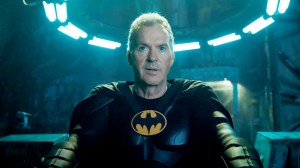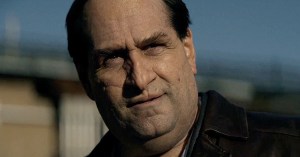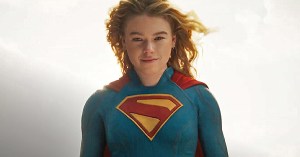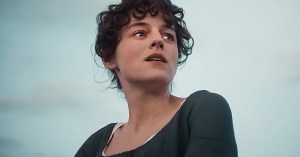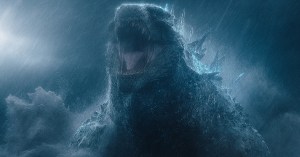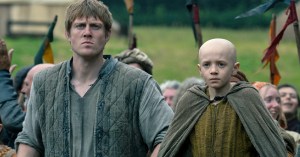Four Ways Black Widow Points To the Future of Marvel’s Phase Four
The latest MCU entry is a look back at the recent past, but it still has big implications for the franchise's future. Here's what we think can -- or will -- happen.
Marvel Studios’ “phase” concept is a curious thing. Originally designed as a loose grouping of films between Avengers installments, the notion of a block of individual stories working cohesively toward an endpoint (or is it an endgame?) generated a lot of excitement. The idea, of course, comes from the comic books, where various titles often work together to build up to an event storyline. In film, though, it was unprecedented, and now that Marvel has proven it works, Black Widow stands at the first Phase Four film of the Marvel Cinematic Universe.
Although, it doesn’t really feel that way for most of the movie.
Set before Avengers: Infinity War, the film feels more like the missing piece of Phase Three — a story offering deeper meaning to Natasha Romanoff’s (Scarlett Johansson) choices in Infinity War and Avengers: Endgame. In that context, Black Widow is a worthy addition to the overall Marvel story, but it seems to lack the hooks one might expect from a film opening a new MCU phase. Granted, the same can be said for Iron Man 3, which kicked off Phase Two.
Black Widow, ultimately, has a more important story objective in showcasing Natasha one last time and deepening her as a character. But even within that, there are a few nods (both subtle and direct) to Phase Four and suggestions of where the MCU story can go buried within its runtime. Join us as we take a look at a few of them.
[This article contains SPOILERS for Black Widow.]
Mining the Past for New Stories

(Photo by Jay Maidment/©Walt Disney Studios Motion Pictures)
Black Widow joins Captain America: The First Avenger and Captain Marvel as a select group of Marvel Studios movies purposefully set in the past — even if that past is just six or seven years prior to the MCU’s present day. It reflects a seeming desire within the studio to utilize past eras more often to establish character beats, flesh out plot details, or set stories in, say, 1963 just because it makes more sense.
Not that we expect Fantastic Four to take place in the ’60s, but having a number of Marvel films serve as prequels to the current narrative while also acting as origin stories has a certain appeal. It would be one way to re-introduce the X-Men in a proper 1980s setting, for example. But beyond the more grandiose way a prequel can be used to further the MCU, it also opens up the possibility for Black Widow as a continuing film series: more stories of Natasha in the past.

(Photo by ©Walt Disney Studios Motion Pictures)
Consider, for a moment, a Black Widow 2 set in the five-year gap between Thanos’s (Josh Brolin) death and Scott Lang’s (Paul Rudd) return from the Quantum Realm. Would Natasha be as weary as she seems in Endgame? Why would she feel that way if she reestablished ties with Yelena Belova (Florence Pugh), Melina Vostokoff (Rachel Weisz), and Alexi Shostakov (David Harbour). Did they get Blipped? Or did another falling out occur, leaving her to run the Avengers with occasional in-person visits from Steve Rogers (Chris Evans)? Alternatively, a sequel could see Nat and Yelena teaming up for another quip-filled adventure as the Red Room still needs further dismantling.
Also, we’ll point out here that another objective of Black Widow was to establish Yelena as a major Marvel player going forward, so we expect any Black Widow sequel would feature her. That said, a Marvel more comfortable with prequels could go back to the Budapest operation (even if we got the gist of what transpired in Black Widow) or even focus on a story in which Natasha is the villain during her time as a Red Room agent. More prequels mean more possibilities while still maintaining the deaths and actions of certain characters — a feat even the comics can’t pull off!
Implications for the Hawkeye Disney+ Series

(Photo by ©Walt Disney Studios Motion Pictures)
But speaking of Yelena, the film’s most direct nod to Phase Four comes during the film’s post-credit stinger, when the former Black Widow accepts a mission to hunt down Clint Barton (Jeremy Renner), a thread that will be picked up in the upcoming Hawkeye television series. Shot in late 2020 and early 2021, the Disney+ series will see Clint training — or assisting — Kate Bishop (Hailee Steinfeld), a new Hawkeye with issues all her own. Also, we’re pretty sure they’re going to run afoul of tracksuit-loving mobsters and adopt an adorable golden retriever with a love of pizza.
The project was one of Marvel Studios’ worst kept secrets, with its existence long-rumored and Steinfeld’s part in it leaking a year before the studio made the news official — and even then, photos of the actor in costume appeared on the internet a good week before studio president Kevin Feige finally confirmed her participation at the December 2020 Disney Investor’s Day presentation. Another rumor about the show indicated Pugh would be making her first post-Black Widow appearance in the series. Then, in December of 2020, it was reported that Pugh officially joined the cast of the series alongside a handful of others. Just a couple of days ago, in an interview with Variety specifically about the post-credits stinger at the end of Black Widow, director Cate Shortland and Pugh essentially confirmed what everyone suspected when Pugh confessed that she “didn’t ever really imagine that [her role in the MCU] would continue quite so quickly.”
It’s worth noting, though, that as Black Widow was originally slated for release last year, the Hawkeye reference sets up something well into the Disney+ slate. It sidesteps the initially announced programs in favor of what will be Marvel Studio’s sixth television program, although there is a nod to another TV show we’ll talk about in a moment. As it stands now, Hawkeye will debut less than year after Black Widow, which means Yelena will be fresher in viewer’s minds when she inevitably beats the living daylights out of Clint.
The Contessa As Phase Four’s Fury

(Photo by ©Walt Disney Company)
Of course, the stinger also features an appearance by Contessa Valentina Allegra de la Fontaine (Julia Louis-Dreyfus). According to Feige, she was always meant to debut in Black Widow, with the stinger serving as a forward link to The Falcon and the Winter Soldier. But since her debut ended up occurring in that series, the Contessa’s appearance here has a slightly different effect — it amplifies, rather than establishes, the notion that she’s serving as Phase Four’s answer to Nick Fury (Samuel L. Jackson).
As we theorized after TFaTWS‘s finale, the Contessa is collecting a team of her own. From her conversation with Yelena, we can gather that Yelena already works for her by the time she learns of Natasha’s death on Vormir. But just what is the Contessa’s aim in building her own Avengers?
The character’s comic book history offer some clues, as the character evolved into the most adept rogue agent ever trained. In her lifetime as a comic book character, she has betrayed S.H.I.E.L.D., Hydra, and seemingly Leviathan, although she could still be loyal to that group. So far in the MCU, the Contessa’s subordinates include an ex-Russian spy and a failed Captain America. That doesn’t feel like an accident, despite whatever promise of glory and country she feeds to John Walker (Wyatt Russell).

(Photo by ©Walt Disney Company)
Is it possible she runs the current incarnation of the MCU’s Leviathan, the Soviet scientific research and espionage agency we mentioned in our round-up of Five Things to Remember Before You See Black Widow? Like Hydra, it was built to survive, and she could easily be its director.
Then again, she could be working with Fury. The two have a long history in the comics, and she could be collecting Phase Four characters on his behalf. The motive: a further defense against whatever foe is up in space that Fury is planning for with the Skrulls (as glimpsed in the Far From Home post-post-credits stinger). But that all depends on whether or not the Contessa is in any way altruistic.
Lastly, there is always the possibility that she herself is a Skrull and furthering an agenda to be revealed in Secret Invasion — another Phase Four Disney+ series due next year.
No matter the true answer, it is interesting to see a character assembling a new team for a shadowy purpose.
Taskmaster As A Continuing Threat

(Photo by Jay Maidment/©Marvel Studios)
We admit this one may be built on a flimsy premise — Marvel seemingly cast Olga Kurylenko for a two-line role in Black Widow. But a face as familiar as hers suggests to us that we will see Taskmaster again. For one thing, she’s a great hand-to-hand foe. Imagine Sam Wilson (Anthony Mackie) or Shang-Chi (Simu Liu) facing an opponent who knows their every move. Try to think of the quip Clint will deliver after she squarely trounces him.
But beyond the physical threat she poses to just about everyone, there is also a further story to tell about her. As opposed to her comic book counter, who is often just a mercenary, Antonia’s story is one of trauma and the horrible realization that her own father put her in this situation. How will she come to terms with that? Will her freedom from mind control and apparent turn away from evil at the end of Black Widow actually stick, or will her anger lead her down the villain’s path? If the latter, will she be clever enough to organize some of the villains herself, or will she fall in with someone like Helmut Zemo (Daniel Brühl)?

(Photo by Adrienn Szabo/©Walt Disney Studios Motion Pictures)
Come to think of it, one of the few things Marvel Studios has yet to attempt is a villain team-up. Is it time for the Masters of Evil? Granted, they’ll need a slight rebranding as that name hardly suits Zemo’s style or politics.
Marvel could also utilize Taskmaster as a recurring villain, which the franchise has done on occasion (not counting big bads like Thanos or Loki). Antagonists generally die or get completely de-fanged by the end of a Marvel movie, and one of comic book Taskmaster’s great strengths is his resiliency. Antonia could prove more successful at the recurring villain role than Crossbones (Frank Grillo) or Batroc (Georges St-Pierre). Also, as Taskmaster fights everyone in the comics, Antonia could appear in anything from an Eternals sequel to the Moon Knight series to Blade.
Black Widow is in theaters and streaming on Disney+ with Premier Access now.

